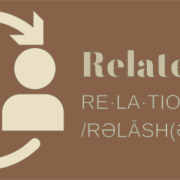Relate – Learn From the Wise – Week 2, Day4
Maintaining Control When Offended
David almost lost control. He almost turned to violence to deal with an offense. He wanted revenge. And there’s a sense in which Nabal, the man David was going to punish, needed to be put in his place. Nabal was mean, nasty, cruel, and unjust. His own servant described him as “such a wicked man that no one can talk to him.” (1 Samuel 25:17)
Listen to the Wise
Listening to the Wise
The servants obviously trusted Abigail. They knew she was full of wisdom and would know what to do. 1 Samuel 25 tells us that Nabal hurled insults at David’s men (v.14). And the servants knew that Nabal’s insults were unjust. They told Abigail that David and his men “were very good to us. They did not mistreat us, and the whole time we were in our fields nothing was missing. Night and day they were a wall around us…” (v.15-16).
The servants knew that David would have every right to punish Nabal. Unfortunately, when the master of the house was unwise, the whole house often paid for the sins of the master.
Abigail went out to David. She identified with his hurt and anger. And she encouraged him to avoid violence by seeing the bigger picture.
Abigail is an incredible example of wisdom, patience, and yes even grace.
Abigail’s words to David are inspiring. 1 Samuel 25:30–31 says,
30 When the Lord has fulfilled for my lord every good thing he promised concerning him and has appointed him ruler over Israel, 31 my lord will not have on his conscience the staggering burden of needless bloodshed or of having avenged himself. And when the Lord your God has brought my lord success, remember your servant.”
The Danger of Getting Revenge
Revenge is a terrible thing. Most people probably think that revenge will help them feel better. The truth is that if often has the opposite effect. Here’s what really happens according to an article on the Psychology of Revenge.
“Even though the first few moments feel rewarding in the brain, psychological scientists have found that instead of quenching hostility, revenge prolongs the unpleasantness of the original offense.”[1]
Had David taken revenge, not only Nabal would have perished. Every male in his house would have paid for Nabal’s sins (v.34). And David would have paid dearly also.
How to Relate to Sinful People
Our relationships matter to God. Even the way we relate to evil and or sinful people matters to God. When we “take matters into our own hands” we are entering into dangerous territory and may end up even worse off.
Nabal later got what was coming to him. The Lord brought his hand of judgment on Nabal and Nabal died. Understand this. God is just. He does punish sin. We can trust him to protect us.
Take some time to think about this. How many times have you wished someone would get what was coming to them? Honestly, how many times have you wished you could punish someone for their offenses?
Adopt a Posture of Prayer
God cares about how you relate to people. Even bad people. There’s something about letting God be the one in control that protects you. In addition, Jesus encouraged you to go so far as to pray for your enemies.
Why should you go so far as to pray for an enemy?
Here is a reason. When you were still sinful, God sent his son as an atoning sacrifice for your sin.
Take some time to reflect on the following verses.
Romans 5:6–8 (NIV)
6 You see, at just the right time, when we were still powerless, Christ died for the ungodly. 7 Very rarely will anyone die for a righteous person, though for a good person someone might possibly dare to die. 8 But God demonstrates his own love for us in this: While we were still sinners, Christ died for us.
Romans 5:10 (NIV)
10 For if, while we were God’s enemies, we were reconciled to him through the death of his Son, how much more, having been reconciled, shall we be saved through his life!
Prayer Prompt
Father, Thank you for your love! I was your enemy and you still loved me. Help me to pray for those who sin against me.
[1] The Psychology of Revenge | Science of People “The Psychology Of Revenge | Science Of People.” Science of People. N. p., 2015. Web. 20 Sept. 2018.




